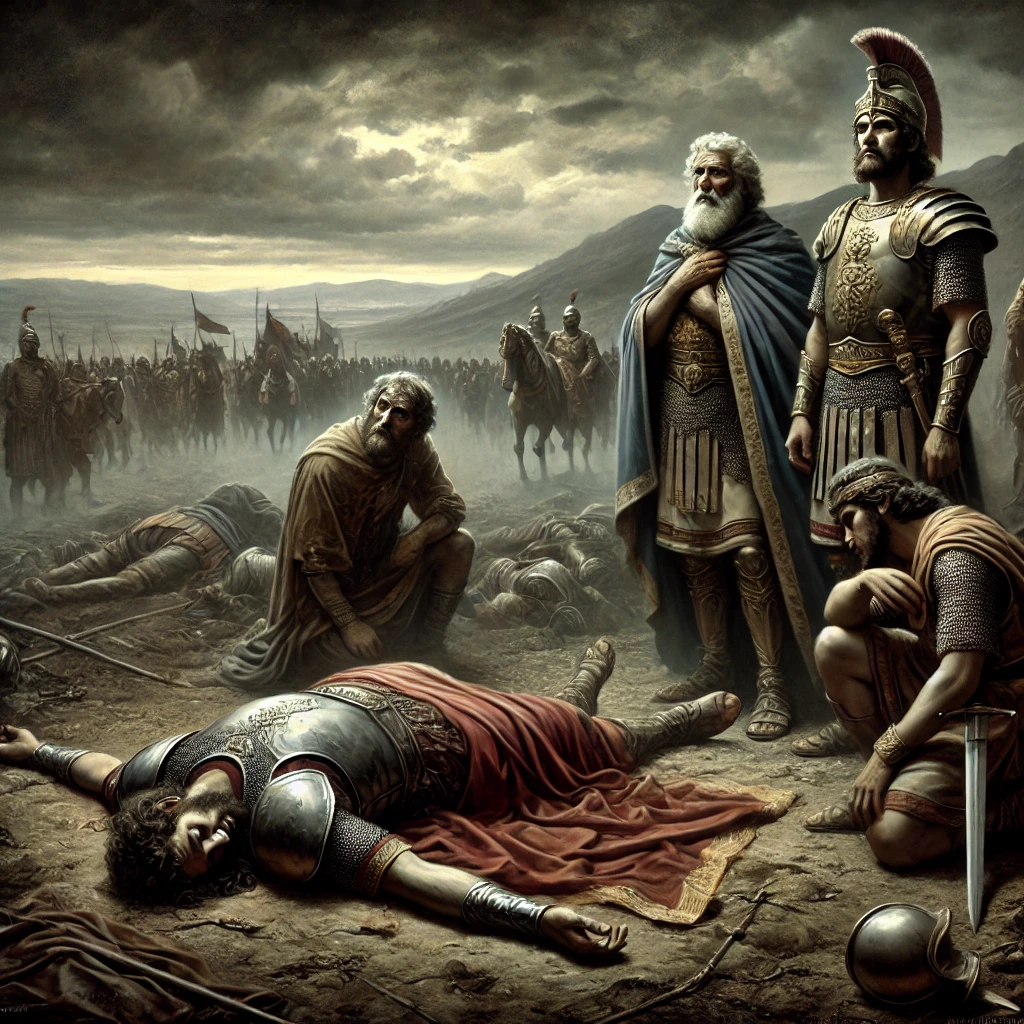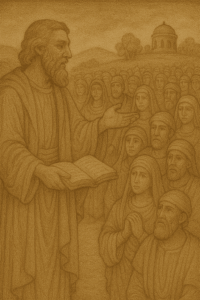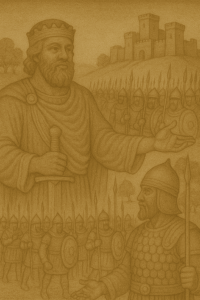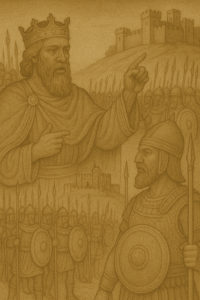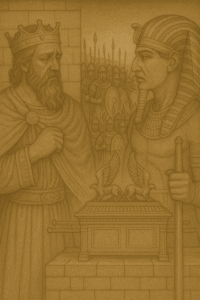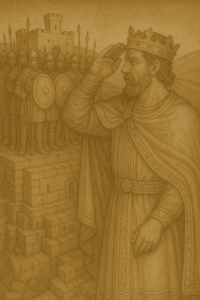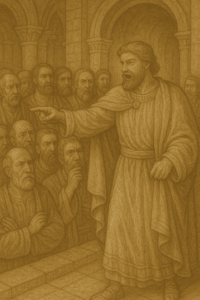Introduction.
1 Samuel Chapter 31 describes the tragic end of King Saul’s reign as he falls in battle against the Philistines on Mount Gilboa. In this final chapter of 1 Samuel, we witness the culmination of Saul’s journey, marked by disobedience, jealousy, and a tragic fate. This moment signals the end of one era and the beginning of another as the way is cleared for David to ascend as king of Israel. Themes of consequence, loyalty, and legacy are prevalent throughout this chapter, making it a powerful closing to Saul’s story.
The Battle of Mount Gilboa.
The chapter begins with a fierce battle between the Israelites and the Philistines. The Israelites suffer heavy losses, and Saul’s sons—Jonathan, Abinadab, and Malki-Shua—are killed in the fight. Saul, wounded by Philistine archers, faces the bleak reality of defeat. In his desperation, Saul asks his armor-bearer to kill him, but the armor-bearer refuses out of fear. Saul ultimately falls on his own sword, taking his life rather than facing capture.
This somber moment highlights the devastating consequences of Saul’s choices throughout his life. Despite his earlier achievements as Israel’s first king, Saul’s legacy is overshadowed by his tragic end, illustrating the effects of disobedience and pride.
The Aftermath and Respect for Saul.
Following Saul’s death, the Philistines find his body and that of his sons on the battlefield. They display Saul’s armor in the temple of their gods and hang his body on the wall of Beth Shan as a symbol of victory over Israel. However, the people of Jabesh-Gilead, who remember Saul’s earlier rescue of their town, courageously retrieve the bodies of Saul and his sons and give them a proper burial.
The loyalty and respect shown by the men of Jabesh-Gilead underscore the impact Saul had on his people, despite his flaws. This final act of honor serves as a reminder of Saul’s early reign, when he was seen as a courageous and capable leader.
Key Lessons from 1 Samuel Chapter 31.
- The Consequences of Disobedience: Saul’s tragic end reflects the consequences of living outside of God’s will. His disobedience throughout his reign ultimately led to his downfall.
- Legacy and Leadership: Saul’s legacy is mixed, marked by both achievements and failures. This chapter serves as a reminder that the choices of leaders have lasting impacts on their people.
- Loyalty in Times of Loss: The people of Jabesh-Gilead show loyalty to Saul even in his death, teaching us the importance of honoring those who have served, even when their lives end in tragedy.
Conclusion
1 Samuel Chapter 31 brings a solemn conclusion to the life of King Saul, Israel’s first king. The chapter serves as a poignant reminder of the importance of faithfulness, integrity, and obedience in leadership. Saul’s fall on Mount Gilboa marks the end of an era, paving the way for David’s rise to the throne. As we reflect on this chapter, may we be mindful of the lasting consequences of our choices and the importance of leaving a positive legacy.
